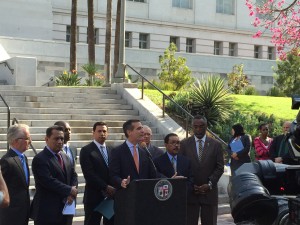The framing of the Yom Kippur ritual in Torah is fascinating and disturbing. In the Torah the Yom Kippur ritual, which is actually the one off desert ritual of cleansing the Tabernacle of sin, which was then converted by the Holiness code, and then the Rabbis, into the annual Yom Kippur Temple ritual, is introduced with the following verses:
וַיְדַבֵּר ה׳ אֶל מֹשֶׁה אַחֲרֵי מוֹת שְׁנֵי בְּנֵי אַהֲרֹן בְּקָרְבָתָם לִפְנֵי ה׳ וַיָּמֻתוּ
וַיֹּאמֶר ה׳ אֶל מֹשֶׁה דַּבֵּר אֶל אַהֲרֹן אָחִיךָ וְאַל יָבֹא בְכָל עֵת אֶל הַקֹּדֶשׁ מִבֵּית לַפָּרֹכֶת אֶל פְּנֵי
הַכַּפֹּרֶת אֲשֶׁר עַל הָאָרֹן וְלֹא יָמוּת כִּי בֶּעָנָן אֵרָאֶה עַל הַכַּפֹּרֶת
And God spoke to Moses after the death of Aaron’s two sons when they came forward before God and died. And God said to Moses: “Speak to Aaron your brother, that he not come at all times into the sacred zone within the curtain in front of the cover that is on the Ark, lest he die. For in the cloud I shall appear over the cover.”
As one of the great Hassidic masters says: והספיקות רבו/and the questions are many. In these two verses, God speaks to Moses twice, וידבר ה׳ and then ויאמר ה׳, but only after the second introduction “and God said to Moses” do we hear what God said. Aaron only had two sons, so would it not have been enough to say Aaron’s sons rather than Aaron’s two sons? The verse says that God spoke to Moses after the death of Aaron’s two sons. This might imply that it was immediately after the death of Nadav and Avihu—but that happened a while ago, and God has said many things between then and now. Also, speaking of Nadav and Avihu, why did the Torah not mention them by name rather than just saying Aaron’s two sons? Why is the incident of Nadav and Avihu’s deaths described as בקרבתם לפני ה׳ וימותו/when they came forward before God and died, rather than offering an explanation for why they died as in Leviticus 10, where it says that they brought foreign or strange fire before God? The verse here seems to be saying that they merely came “close to” God, or “came before” God and they died.
Continue reading
 Why do we read the book of Jonah on Yom Kippur?
Why do we read the book of Jonah on Yom Kippur?